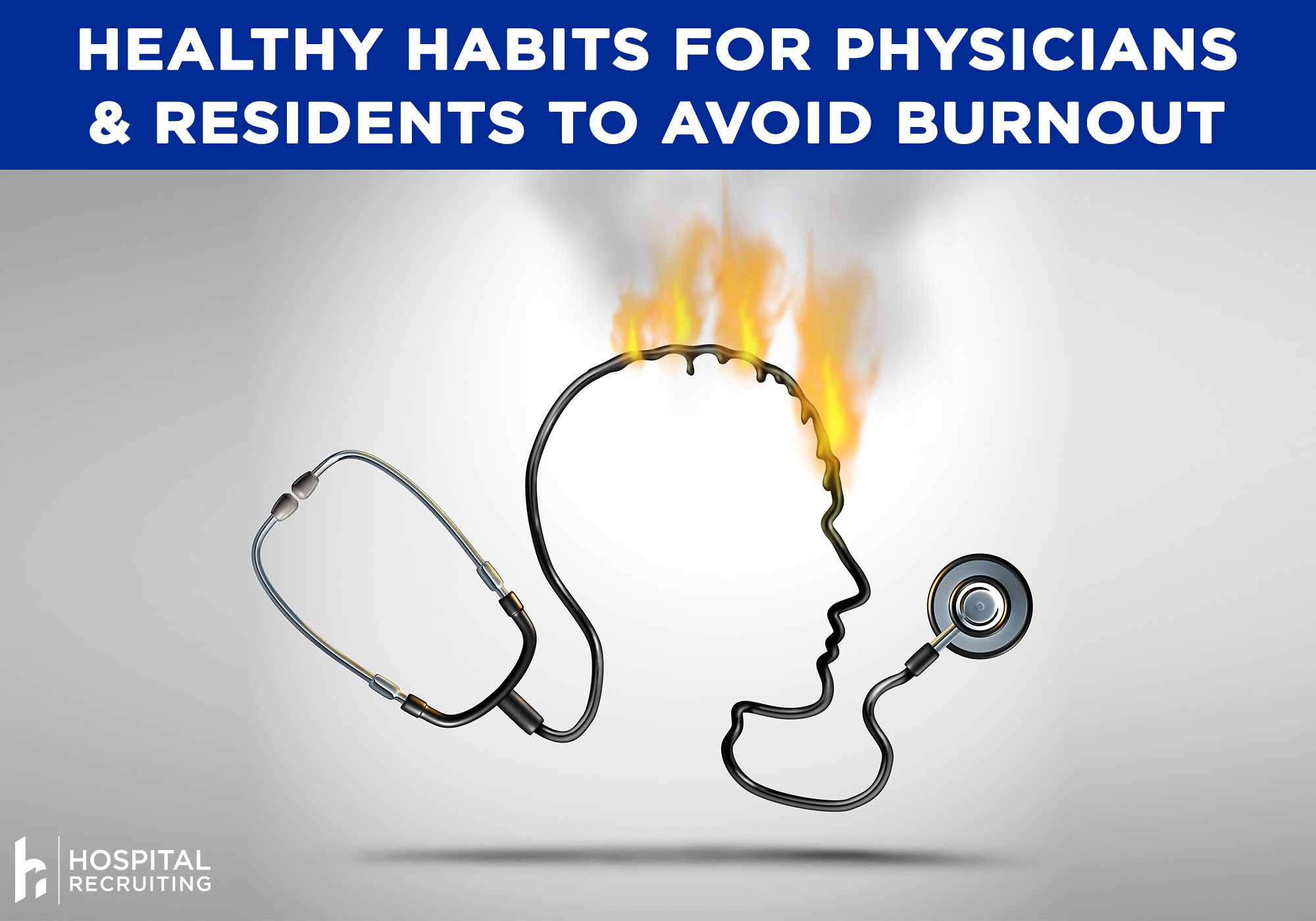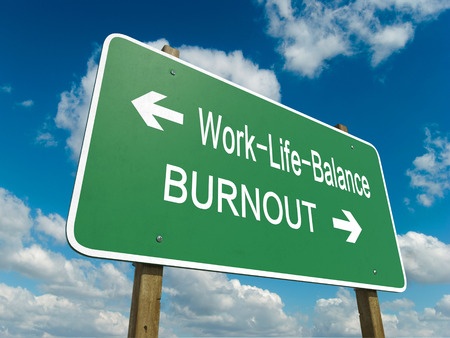Healthy Habits for Physicians and Residents to Avoid Burnout was originally published on HospitalRecruiting.

Burnout among physicians is a state of physical, emotional, and mental exhaustion caused by prolonged stress and frustration in the workplace. It is often associated with feelings of being overwhelmed, lack of accomplishment, and depersonalization of patients. Symptoms of burnout include fatigue, depression, reduced job satisfaction, and increased risk of medical errors.
Burnout is a growing problem among physicians and residents, with more than half of all U.S. physicians reporting feeling burned out. With more doctors feeling overwhelmed and stressed, it’s important to recognize the signs of burnout and take proactive steps to prevent it.
If these symptoms are present, take a step back and assess the situation. Talk to your supervisor, get yourself into counseling, and if possible, take some time off – or better yet, a vacation. Burnout can be as deadly and progressive as sepsis – not something to be ignored.
One of the best ways to prevent burnout is to prioritize self-care. This means taking time for yourself to relax, get adequate rest and exercise, and take breaks from work. Maintain a healthy lifestyle, with plenty of fresh fruits and vegetables and a balanced diet. Take this part seriously. The car cannot run without proper oil and gas (or energy, if you drive an EV like me).
Create healthy boundaries between work and home life. This means setting aside time to spend with family and friends and limiting the number of hours you work. It’s important to remember that work is not the only important part of life and that spending time with loved ones is just as important. If your on-call schedule is slowly killing you, have a conversation with your colleagues or supervisor.
It’s also important to recognize the signs of burnout in your colleagues and offer support and assistance. This could include offering to cover shifts or providing emotional support. This can be a powerful tool in preventing burnout, as it lets physicians and residents know they are not alone.
Connect with other professionals in the field and share experiences. This could be done through online forums, conferences, or even local meetings. By hearing about other people’s experiences, physicians and residents can gain insight into how to prevent burnout and how to maintain a healthy work-life balance.

Finally, I encourage practicing healthy coping strategies such as mindfulness and meditation. Recognize when professional help is needed, such as when dealing with chronic stress or depression.
By taking proactive steps to prevent burnout, residents and physicians can ensure they are able to remain productive and successful in their fields. By prioritizing self-care, creating healthy boundaries, and staying connected with other professionals, they can maintain a healthy work-life balance. Additionally, by recognizing the signs of burnout in their colleagues, they can help create a supportive environment that can help to prevent burnout.
**Editor’s note: For more resources on provider burnout, view the topic page on our healthcare career resources blog.**


